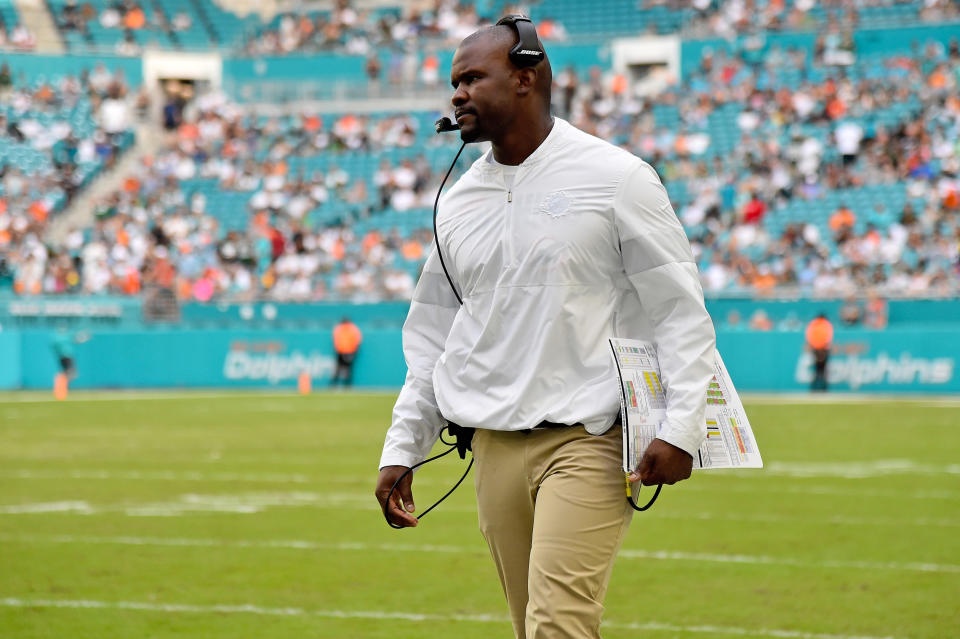Dolphins impressive in conviction to move on from missteps

Say what you will about the Miami Dolphins’ decision to waive 2020 5th-round pick Curtis Weaver this week and his subsequent claim by the Cleveland Browns, but the Dolphins do deserve a little credit for their conviction. Because the Dolphins didn’t have to release Weaver and open up a roster spot. The team very easily could have withheld Weaver on the training camp roster and then, on September 5th after cutting down to 53 active players, placed Weaver on injured reserve and protected their rights to him as a player.
The Dolphins chose not to. Which means Miami, somewhere along the way these past few months, saw enough of Curtis Weaver to know he wasn’t a player they had keep around. Perhaps the untraditional pre-draft process helped hide issues that otherwise would have been sniffed out. Whatever the reason, the Dolphins weren’t afraid of the prospect of losing Weaver despite their recent investment in him.
And that’s been a common theme for the Dolphins — an admirable quality if we’re being honest. Because as the team collects more information on their players and evaluates who they’re becoming, holding on to someone for too long or putting too much value into a player because of his investment rather than his merits can create a logjam for improving as a team. The Dolphins have plenty of examples of this “lack of ego” in their decision making process since Chris Grier and Brian Flores paired up:
The team cut 2019 6th-round pick Isaiah Prince in December of 2019, he failed to make it through his rookie season
Miami waived safety Adrian Colbert this summer after resigning him in the spring — after they picked up several other safeties to help bolster the room
The Dolphins still drafted QB Tua Tagovailoa with the No. 5 overall pick despite the investment they made in QB Josh Rosen in the spring of 2019
Miami tripled down on offensive linemen in the 2020 offseason despite 2019 rookie Michael Deiter being a high pick in the 2019 draft
Things sure would be a lot easier if the Dolphins bat 1.000 on their decision making process, but that is an impossible expectation to hold any NFL team to. Acting without emotion and acting without ego is a great way to keep the roster fluid and, more importantly, keep the roster improving. The Dolphins, with their new investments on the offensive line, may wake up one day next summer and see Deiter has developed and suddenly this team has a slew of depth inside.
That’s how good teams and deep rosters are born. So yes, we can second-guess some of Miami’s personnel decisions based on how quickly the team has moved on from those players. But if you’re going to do that, be sure to put every other team across the league under the same microscope — you’ll find it’s a common occurrence for all 32 franchises. But what is not as common is the other quality the Dolphins have shown: the ability to emotionally detach themselves and move on/re-invest in those position groups quickly to avoid stuffing up the development of the team.

